|
Bishop McGrattan's homily at the Memorial Liturgy for those grieving the loss of a child through miscarriage and stillbirth, November 24, 2022 at St. Mary's Cathedral. In the communal life of the Church the witness of faith and belief in Christ is always confirmed in the following – “Faith if it is genuine works through love”. Another way of stating this truth is that in the Christian life our faith is to be expressed through acts of love. This evening those families who have gathered, parents, grandparents, and children are united in the painful reality that they have suffered the loss of a child through miscarriage or stillbirth. Despite this pain and grief which is shared by those here present they also witness to a communal act of love in the remembering of their children in prayer. This is also a genuine witness of faith to the sanctity of life. That all human life from conception to natural death is a gift from God who is the Creator. He is the author of all life and in Christ we come to know and believe that through his death and resurrection we receive the gift of eternal life from God the Father. This is the hope that must also unite us in the prayer of this memorial liturgy. In the Old Testament, the remembering in prayer of God’s salvific presence in the midst of his people was always an act of “anamnesis”. It is a spiritual remembering and an act of faith in which they experienced the very presence of God’s love. In the First Letter of John this evening we heard the sacred author reminding the early Christians of this same truth. “See what love the Father has given us, that we should be called children of God; and that is what we are”. Other translations of this passage replace “See” with “Remember”. This evening we remember the love that the Father has given these parents through marriage. A love in which He invites husband and wife to share in His “co-creative love”, to express mutual love for each other and to be open to bringing new life, children into the world. 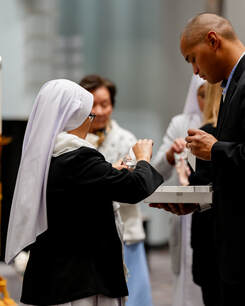 This vigil celebration of prayer for those children who did not receive the gift of being born into a family are still known by God as his children, like us. Although you as parents did not receive the joy of knowing your children you do share the anguish, sorrow and despair of their loss. However, in the faith that we share in being disciples of Christ, the suffering we experience now will always be transformed by Christ and that “what we do know is this: when he is revealed, we will be like him, for we will see him as he is”. This is the hope that we pray will sustain us as it did the early Christians. In the Beatitudes Jesus teaches his disciples that despite the present circumstance of their life the future they desire will become one of blessing and happiness if they maintain their faith in Him. This is the faith that allows one to trust that the fullness of our life is revealed in Christ. This would have been the desire and the faith of these parents for the children that they have lost. To be baptized into the fullness of the life of Christ. At the conclusion of this liturgy we incorporate the sign of light, in the lighting of a candle. Light symbolized the dispelling of darkness, and spiritually it overshadows for believers the sadness of death. The light of the paschal candle for Christians symbolizes the eternal light of the resurrection of Christ. As you come forward to light the candles for your children and their names are proclaimed, you are uniting yourselves in this communal act of love in remembering the children you mourn, but also it is a sign of your genuine faith and belief in the resurrection of Christ for your children. We who gather support you in the loss of your children, but in faith and through our prayers, we pray that they now share in the eternal life of Christ and God the Father.
0 Comments
Perhaps you have gone through difficult times and received unhelpful but well-meaning comments. Maybe you just heard yourself say something that didn’t come across as well as you thought it would as you tried to console someone. Watch this video and learn some tips on knowing the right things to say as a personal mini sensitivity training.
At any age, often without warning, we might suddenly find ourselves in the ‘desert’, a state of extreme emotional and/or physical hardship. I was in this place following the death of my twin sister. I don’t remember the details; it was simply a long, weary, grayness. I wandered through my life on autopilot, scarcely caring about my responsibilities. If I appeared to be coping it was a mirage because my heart felt arid, my feelings numbed and the future a bleak continuation of present misery. I could not find the energy to pray. Indeed, I didn’t recognize God at all in this experience. For years I was angry with God for perceived injury and persistent inattention. Desert times often accompany chronic illness or the death of a loved one. Sometimes we have lost a job or an important relationship. Each of these circumstances cause great (and some may say necessary), grief. If we’re lucky, we will grieve in a supportive environment and eventually find our way out. However sometimes, through no fault of our own, we become stuck in a place of lifelessness and pain – a desert of the soul. By the grace of God, I eventually emerged from my ‘desert’. Life still has sorrows in every season but now I don’t feel as stranded as I did before. Curiously, what helped me is learning more about Nature’s deserts. In nature the desert is not lifeless. It’s filled with plants and animals which have adapted to the harsh conditions. These remarkable creations not only survive but thrive. I’m particularly struck by the coping strategies of plants. Here are some of those methods which might translate into spiritual strategies to survive our own desert times. Vast root systems Mesquite plants can have tap roots 80-100 feet long, reaching deep into the soil to find water. Cactuses have shallow but extensive root mats which extend far beyond their stems so that they can absorb every drop of rain when it falls. By going deep and wide in our prayer life, we will be more likely to receive the comfort of the Holy Spirit. So when our daily Scripture reading becomes rote, keep reading. When our prayers become stale, keep praying. When we don’t feel the least bit holy, keep coming for the Eucharist. Staying accessible to God increases the likelihood that eventually we’ll feel his presence. Small leaf surfaces Cacti have leaves so narrow that they resemble spines. This is to reduce the loss of water to the environment. When we’re hurting it’s OK to withdraw from the world. Well-meant comments can feel overwhelming so reduce contacts and commitments if you need to. But don’t isolate entirely. Keeping even a sporadic connection to our community or parish ensures the fraternity we may not even realize we need. Liquid reserves Succulents have evolved to store water in their leaves, stems and even in tubers underground. In our driest times we might find hidden reserves in places we never expected. I discovered peace at silent retreats which I’d previously avoided. A woman I know found meaning in writing a book about her husband’s terminal illness. Occasional exuberance Ephemerals are short-lived desert plants which bloom and die in one season leaving hardy seeds which can lie dormant for years until it rains again. Even in the midst of sadness, there can be moments of surprising joy. I can recall a milestone birthday, filled with light-hearted teasing, shortly after my sister died. I was glad to be alive that day but so sad afterwards that my twin couldn’t celebrate her milestone too. Nevertheless, the memory of having been happy gave me hope that I could feel that way again. Desert times are difficult and nobody chooses them willingly. But if they come we need not fear them. We can trust God to help us survive until we experience the joy He has in store for us, beyond the desert. The upcoming season of Lent mirrors the 40 days Jesus spent in the desert. Traditionally this is a time of sacrifice and increased prayer. It is an opportunity to feel some discomfort in solidarity with Jesus who spent his desert time with no sustenance and being harassed by the devil. Most of us will not feel that level of deprivation at Lent but we can remember and pray for those who do.
I moved to Edson in the summer of 1997, only days after my wedding, to join the Living Waters Family. I have been a proud member of this family ever since, working at both Vanier and Holy Redeemer. As an educator, I have never known working outside of a Catholic, faith-filled, school environment. Information on working in a non-Catholic school has only come to me from conversations with other teachers, parents, students and my own personal observations. All I can say for certain is that the “feeling” when entering a Catholic School is unique from entering any other school. No matter where the school is, that feeling is unmistakable. On September 25th, 2014 I experienced one of the darkest days of my life. A close friend, who was also a former staff member and wife to a current staff member, passed away suddenly. I wish I was a gifted enough writer to properly convey the loss that I felt that day for our school community, my family and friends, myself and her husband. I was devastated. When I arrived at work shortly after 8 am that morning I was immediately met by weeping students and staff members. Never before had I felt such sadness and loss. As I made my way through the foyer, I saw something I will never forget and to this day brings a smile to my face. Our Superintendent and her Deputy Superintendent were there offering condolences to staff and students. They probably didn’t hear the news until 6 am that morning and drove to Edson (an hour drive) before I was even able to make it to the school, to be with us in our time of grief. I honestly can’t remember what they said to me that day but I clearly remember the feeling; the feeling that God is with us and that, eventually, we’d be ok. We have a chapel in our Catholic school, which was a great source of comfort for me. Over the next days and weeks, I would spend a few minutes at the beginning and end of the day sitting in quiet, sobbing, reflection. As I sat there suffering, Jesus was there too suffering on the cross with me and for a few moments each day, I didn’t feel alone. Our Principal, who is a deeply religious man, was also a great source of comfort to me. He and I engaged in many conversations about life and death throughout that school year. Listening to him talk about his faith helped me to heal from this great loss. I can really never thank him enough for that time, and since he retired, I miss our theological talks. Would any of this be possible in a non-Catholic school? Of course. Catholics are not the sole custodians of empathy and compassion. However, the fact that we can bring faith into our grieving process for our staff and students cannot be overstated. It helped me immensely and I cannot imagine what that time would have been like for me without my Living Waters Family.
|
Author
Catholic Pastoral Centre Staff and Guest Writers Archives
July 2024
Categories
All
|
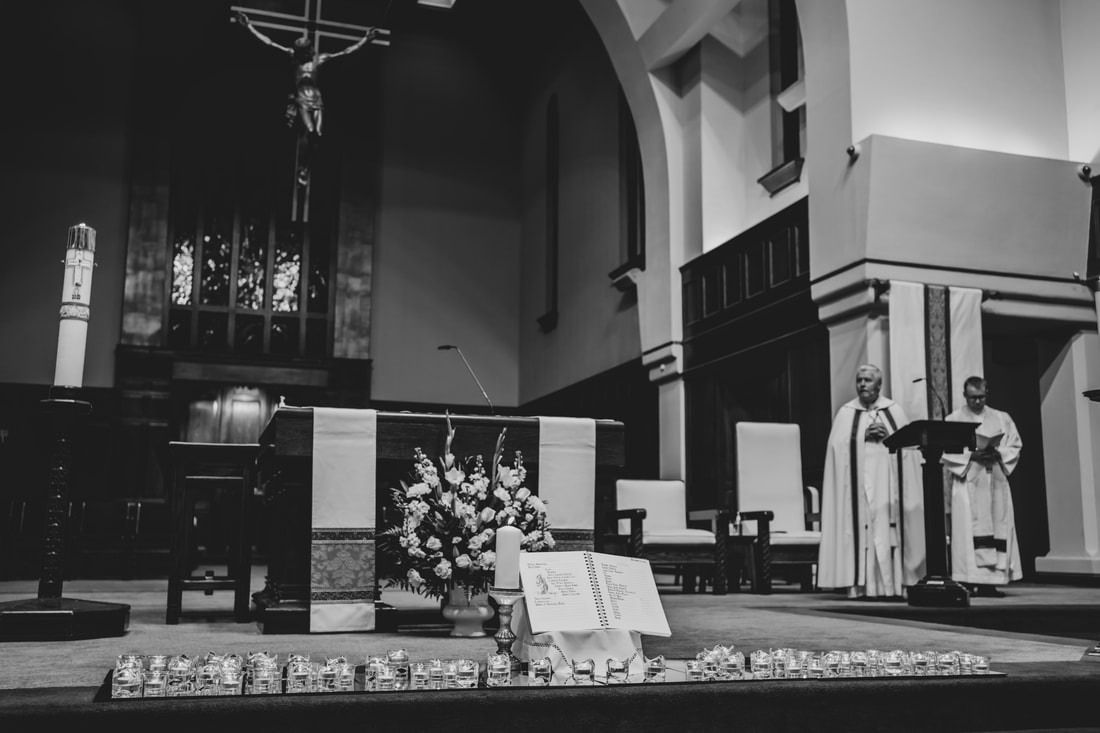
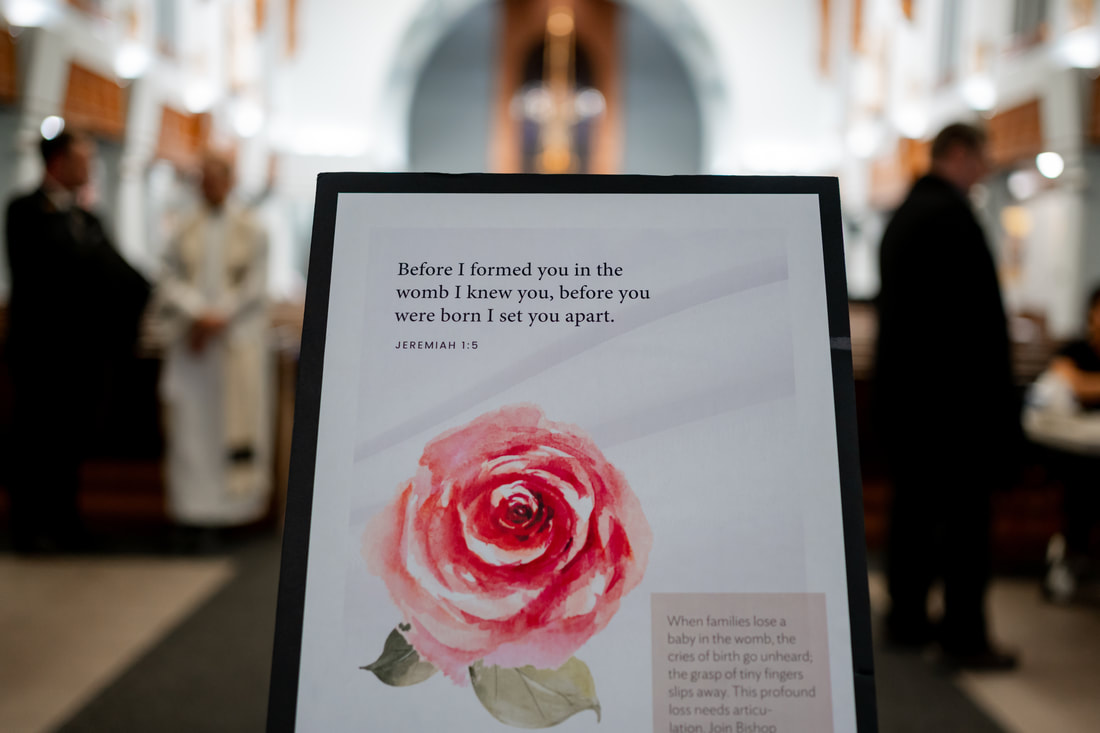



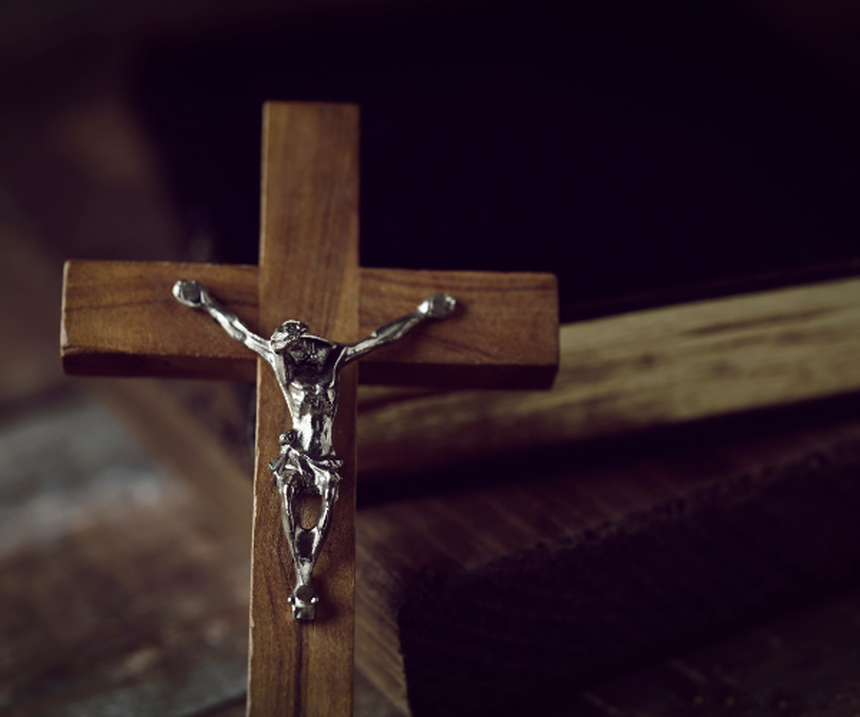
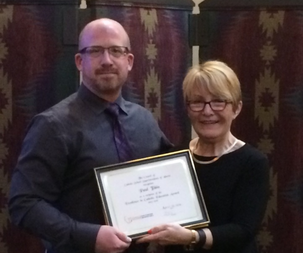
 RSS Feed
RSS Feed